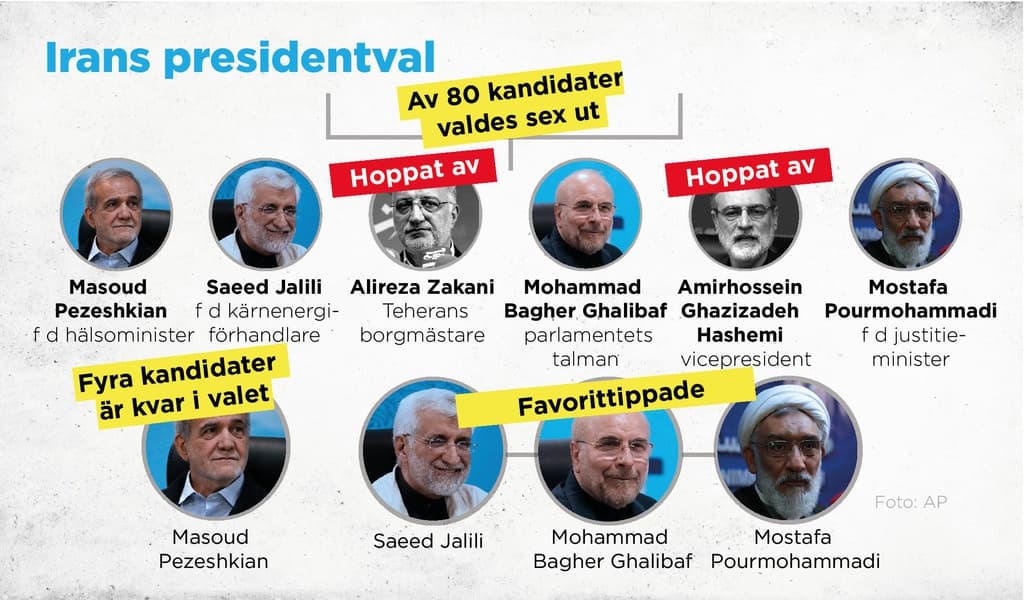Today, an extraordinary presidential election is being held in Iran since the previous president, Ebrahim Raisi, died in a helicopter crash.
A game for the galleries, according to Iran expert Arvin Khoshnood, who predicts a record-low voter turnout.
It's no longer believed that one can influence anything by voting, he says.
Six candidates – including the mayor of Tehran and the speaker of the Iranian parliament – have been given the green light to stand in Friday's presidential election. One of the candidates, the heart surgeon and former health minister Masoud Pezeshkian, is portrayed as a reformer and has, among other things, called for Iran to return to the 2015 nuclear agreement.
But political scientist Arvin Khoshnood, who has followed Iranian politics for many years, points out that all candidates are loyal to the Islamic regime and its supreme leader, Ayatollah Ali Khamenei, who has ruled Iran since 1989.
All are in substance and ideology united with each other. That someone is called a reformist and others are called more hard-line is just a game for the galleries, he says.
This week, Khamenei urged voters to go to the polls to "overcome the enemy". But much suggests that voter turnout will be low, as Iranians have largely boycotted elections in recent years. The country is heavily pressured by economic sanctions and has also been shaken by widespread regime-critical protests.
I think this will be a struggle between the regime and the people instead of a presidential election. The opposition has been clear that a vote for any of the candidates is a vote for oppression, torture, and murder, says Arvin Khoshnood.
Lacking Real Power
He emphasizes that the president has very little power and that important decisions regarding foreign policy, security issues, and economy are made by Khamenei, who, in addition to being a political leader, is Iran's spiritual leader.
The speaker of parliament, 62-year-old Mohammed Bagher Ghalibaf, who previously was police chief and commander of the Revolutionary Guard, is one of the favorite candidates, as are Saeed Jalili and Mustafa Pourmohammadi, who both have held high positions within the regime.
No woman has been allowed to stand in the election. In recent days, two candidates, Vice President Amirhossein Ghazizadeh Hashemi and Tehran's mayor Alireza Zakani, have announced that they are withdrawing.
The fact that only six of 80 presidential candidates were approved by Iran's government indicates divisions within the regime, according to Arvin Khoshnood.
Failing Health
The internal power struggle has become increasingly intense as 85-year-old Khamenei's health has deteriorated, he says.
Iran's regime is not only a threat to Iranians but to the entire Western world. If one wants to have a stable Iran after Khamenei's death, it is extremely important that the Western world, not least the EU, begins to discuss the country's future with Iranian opposition groups.






